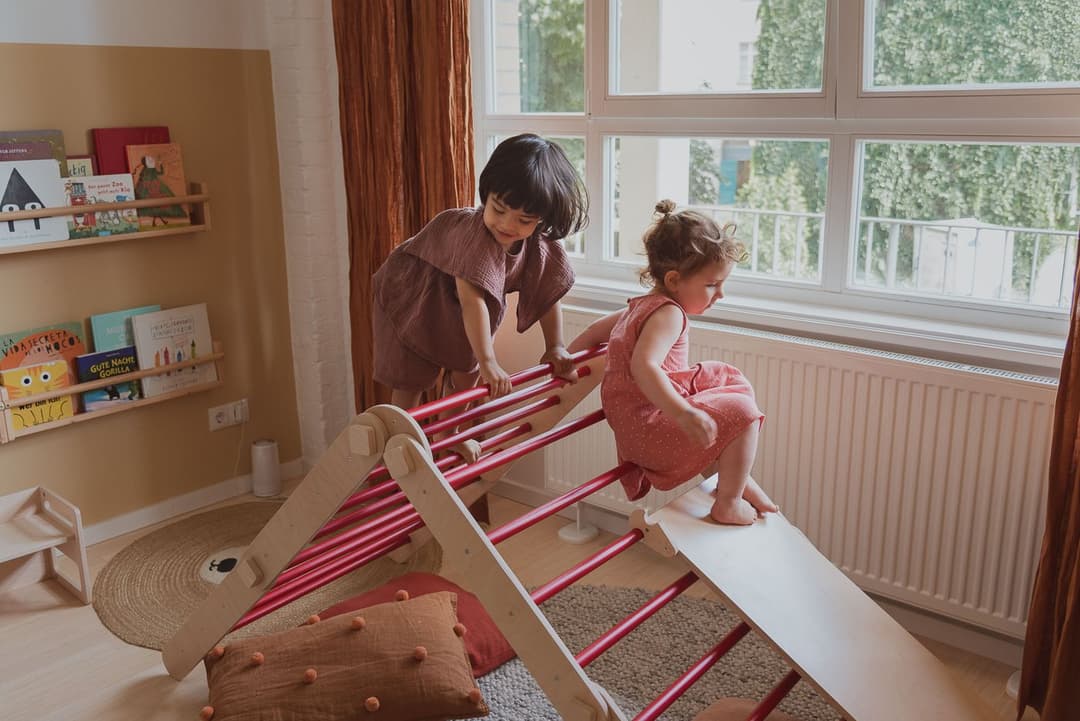
Our experts & references
Educational

Easy

Sustainable

Flexible
Meet the Tribu experts
Dr. Michele Veldsman, Ph.D.

A mother of two and scientific researcher for over 15 years
Michele is a brain enthusiast. She completed her Ph.D. in cognitive neuroscience at the University of Cambridge. She studied visual short-term memory to understand how our brains store complex information that enables us to navigate our rich visual world.
Right now, she is a research associate in cognitive neuroscience at Oxford University, still obsessed with brains. Here she studies the neural basis of memory and motivational deficits in diverse clinical populations.
Katelynn Chittenden J.

Mother and Director of Montessori Mother-School since 2017
Teaching is Katelynn's superpower - she's been doing it for over seven years. Her specialties are multilingual environments and language development. She also holds the world's highest qualification for Montessori 0-3. This seasoned educator is a Certified Toddler Assistant at the Association Montessori Internationale (AMI).
"My goal is to uphold and promote the educational principles ad practices of Maria Montessori for the full development of the human being and to help children realise their potential for a better future."
Jutta Wohlrab

Jutta's experience as a midwife is incredible. She's been in the field for more than 38 years!
Her early days as a midwife began in Stuttgart in 1986. Since then, she has worked freelance in hospitals as well as birth centres in Germany, New Zealand, and Australia. Her love for her work helps her support women in home births, natural births in a clinic, and surgeries. Jutta is a well-loved midwife! Throughout the years, her help is appreciated by women with high-risk pregnancies or health problems before, during, and after birth.
"Babies and their parents deserve the best start in life. Babies are so interactive, they love to communicate, sing, play, cuddle and smile to socialise. It helps everyone thrive and feel good."
Savanna Neitzel, M.Ed.

Mother, learning experience designer, and teacher with over 10 years of experience in the education sector.
After completing both a Bachelor's and a Master's degree in Education with a focus on languages and communication, she's now in Berlin, pursuing her passion for teaching. Additionally, she is a US licensed educator. Research, practical classroom work, learning experience strategies - she knows them all and she knows them well.
"Babies and toddlers communicate with us from the very beginning. It is not only important to understand them, but to nurture their communication skills from the beginning."
Andrea Botteri, MSc.

Mother and preschool teacher with over 10 years of teaching experience.
Teaching young kids may be challenging, but it is no big deal for Andrea. She's a natural when it comes to dealing with preschoolers. She puts to good use her Bachelor's degree in Early Development and Education and her Master's degree in Learning Difficulties during Early Education.
"Babies and toddlers have such unique needs when it comes to brain development. A big part of my work is helping parents access the information and resources they need to help their children's potential flourish."
Eva Vasquez, M.D.

Eva is an experienced paediatrician in both the public and private sector.
As a paediatrician, she has touched the lives of children of all ages - from young babies to teenagers. She's quirky and fantastic, too! She loves to bring joy to her patients as a clown doctor.
"I chose to train as a clown doctor at the beginning of my career because my duty does not end at science, but goes far beyond that. I firmly believe that joy, laughter, and fun are crucial ingredients for a happy life for any child.
Activities and toys are a great way to learn and socialise. Always supervised, of course, and always with safe materials."
Karen Simon

Karen Simon is a children’s librarian with extensive experience working in academic and public libraries in the San Francisco Bay area, Chicago and Nebraska. She earned her BA from the University of Chicago and her Master of Library and Information Science degree from the University of Illinois. Her passions are early literacy, child development, children’s literature, writing, and music. She lives in Berlin with her husband and toddler.
“It’s never too early to read to a child. A baby’s first three years is an optimal time to start–the brain is absorbing so much knowledge at this time! Books are also important for social emotional intelligence: understanding our own feelings and other people’s feelings. Books can open up the world to us so it’s important to expose our kids to all types of books featuring diverse people, places, and ideas.”




